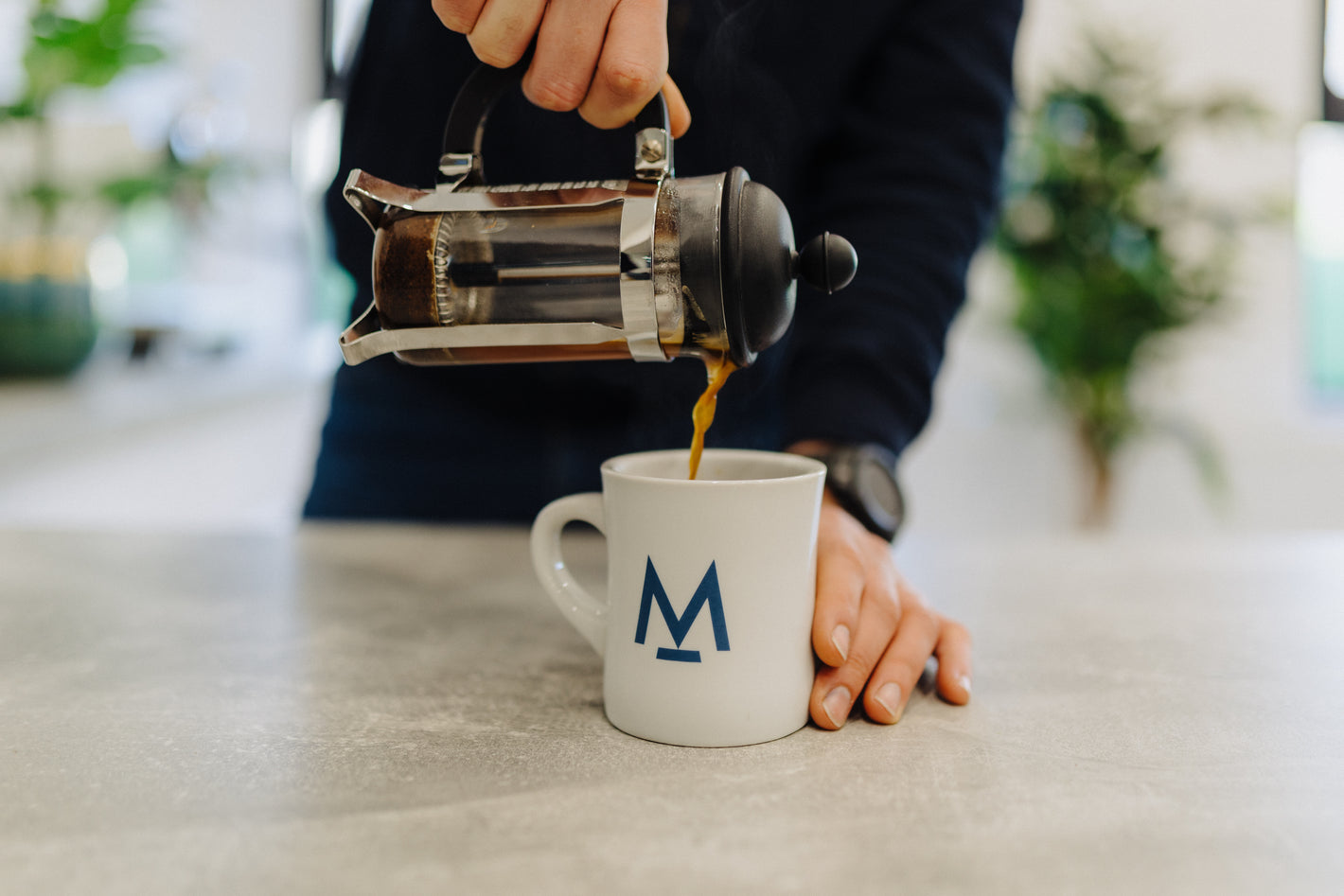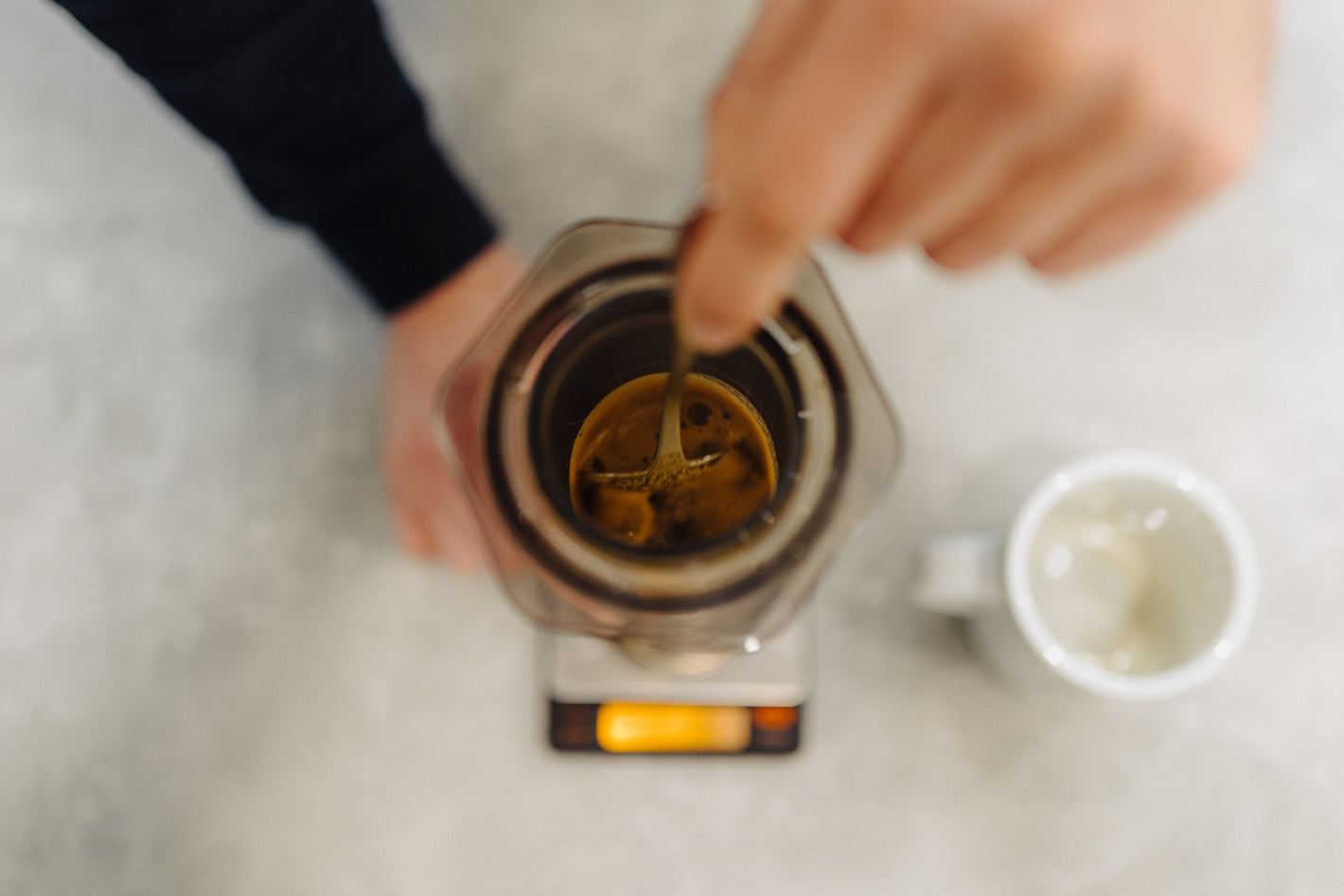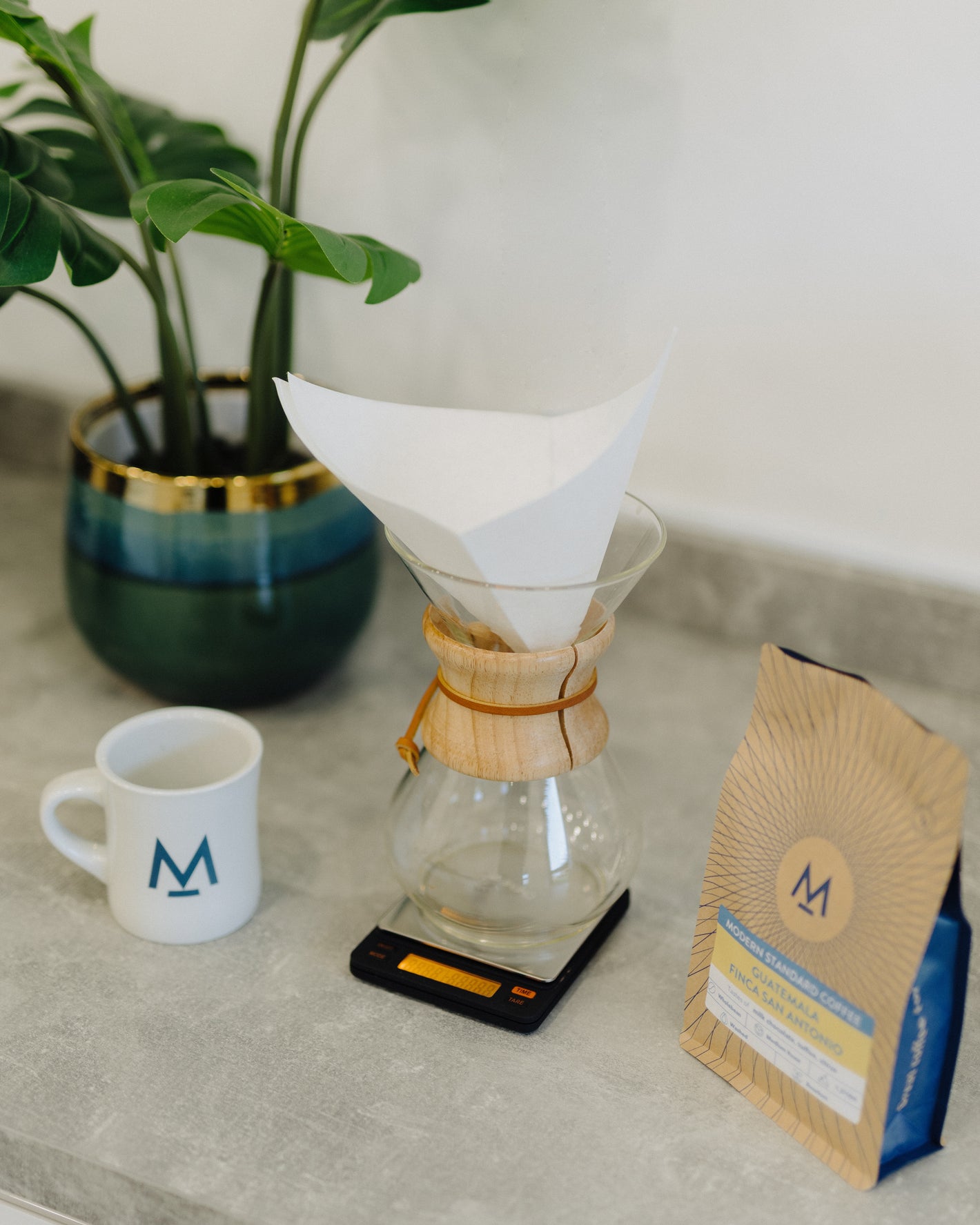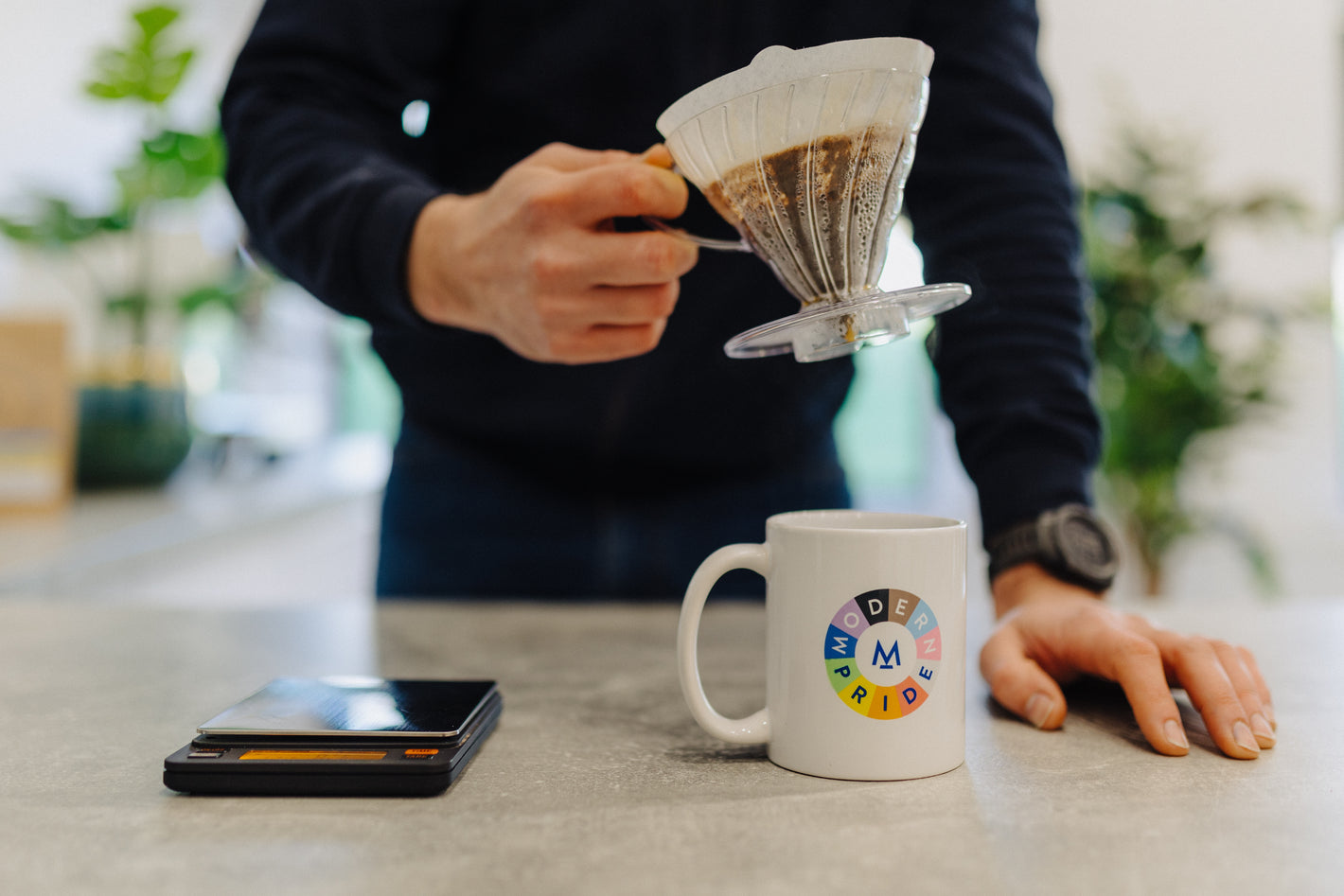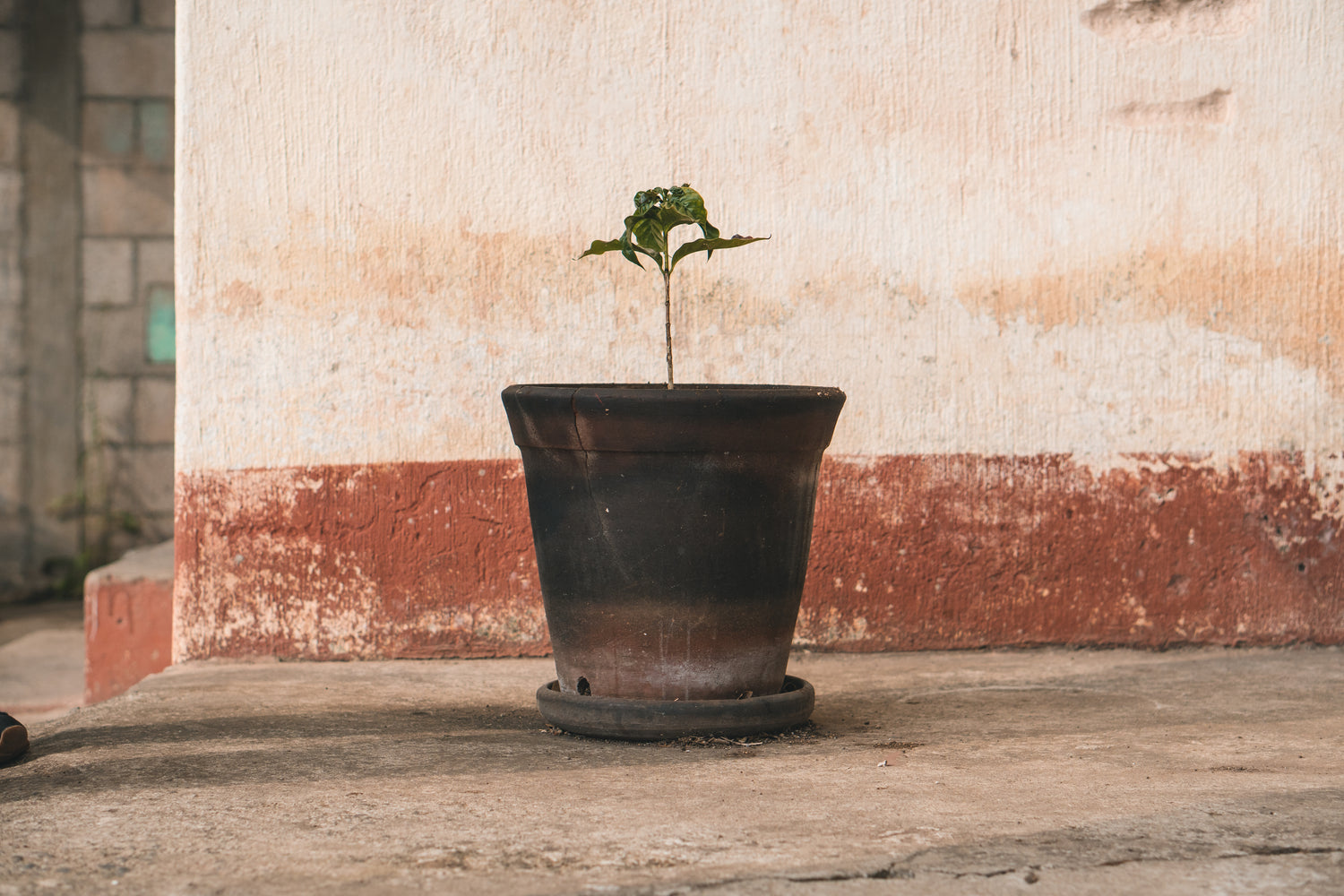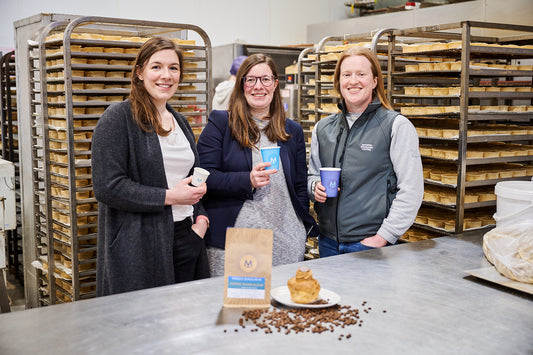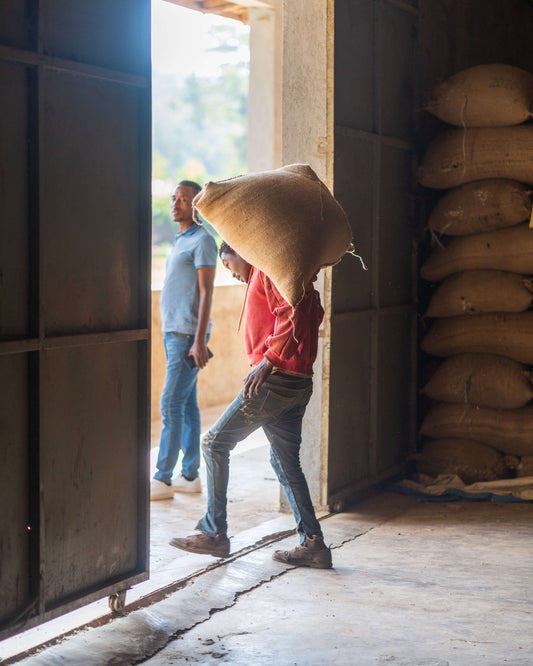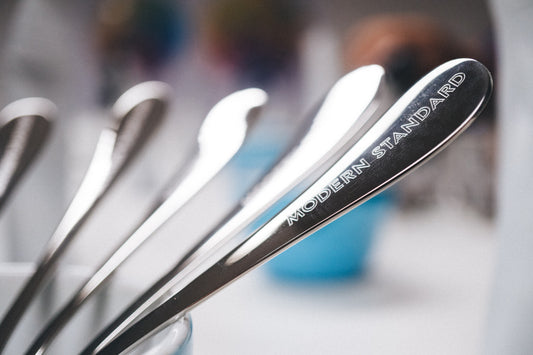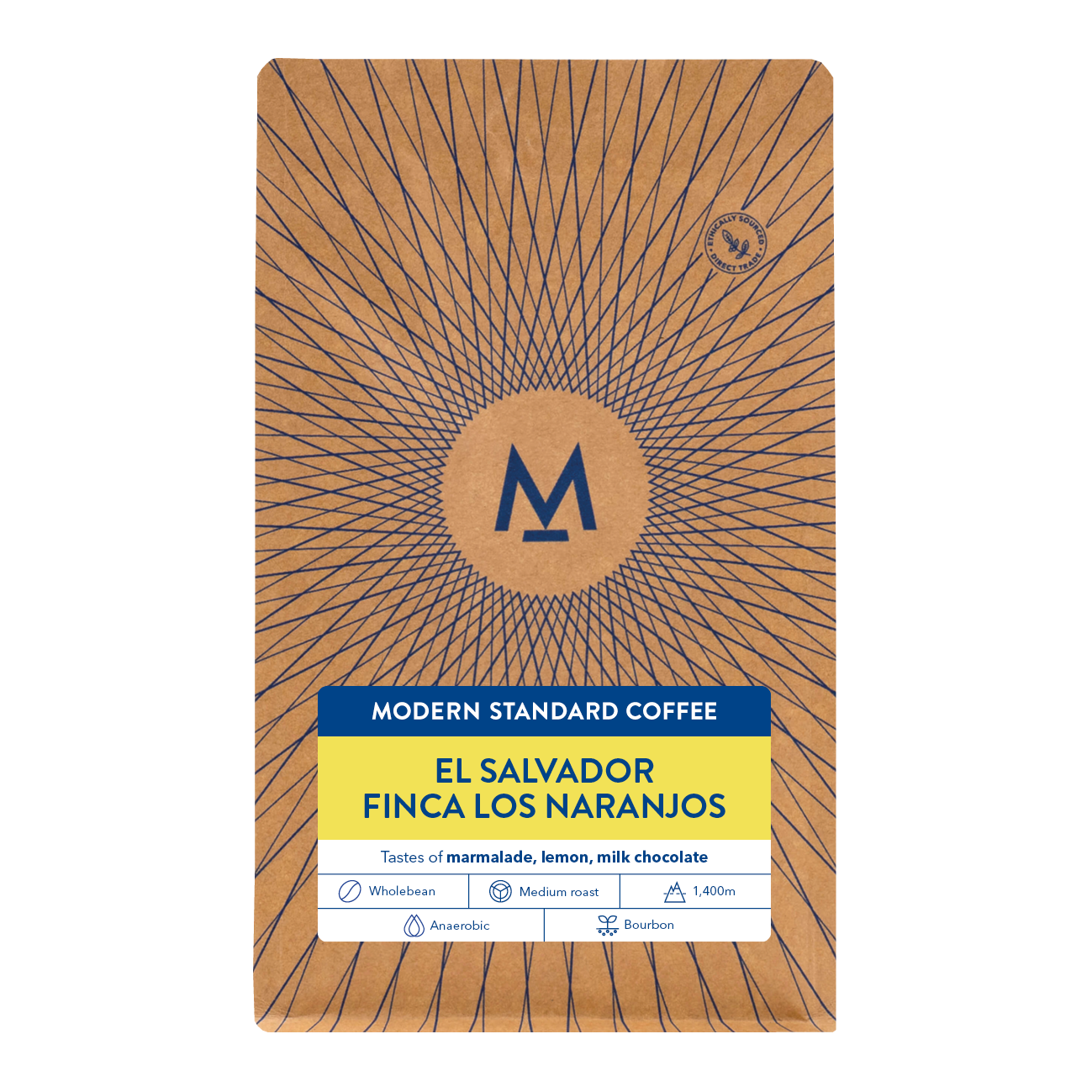
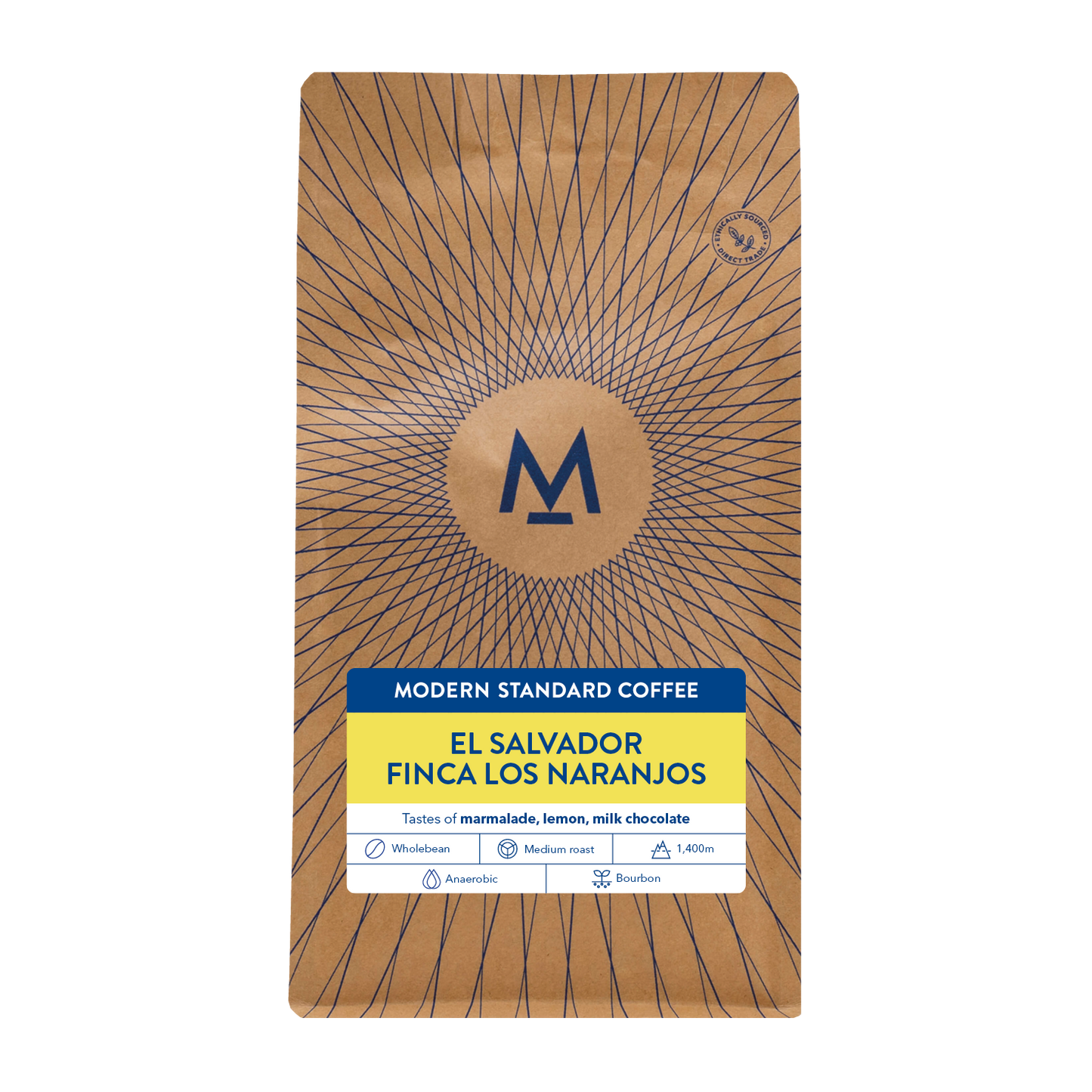
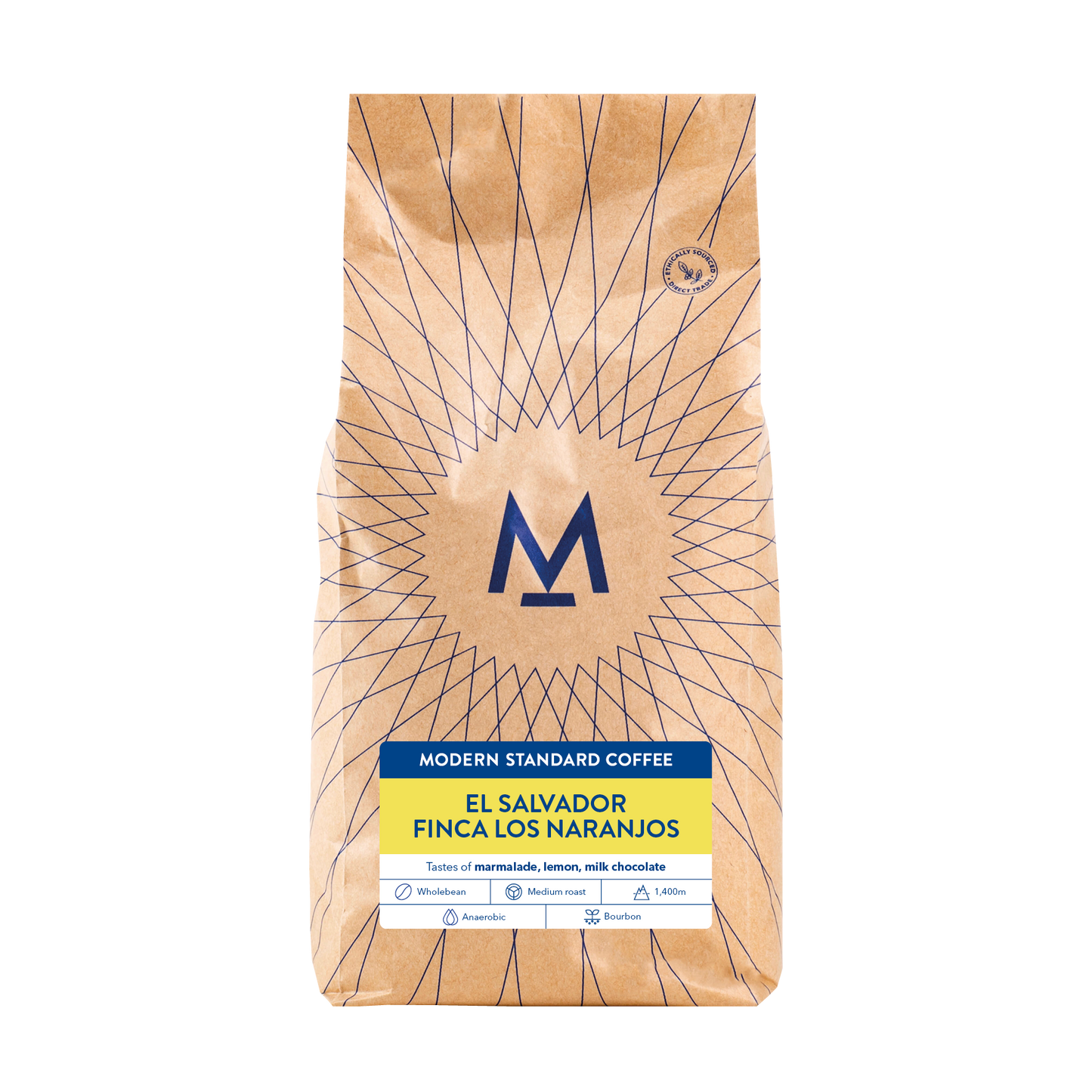
The overview
| Countries of origin | El Salvador |
| Producer | Los Naranjos |
| Altitude | 1400 - 1700m |
| Varietal | Bourbon |
| Process | Natural |
The producer
Finca Los Naranjos is a located in the Los Naranjos Canton and this is where it takes it name from.
The farm has 22 manzanas producing coffee with the varietals bourbon, Pacamara and Geisha, pacas and catimor planted on the farm. In total there are 45 workers on the farm which increase to 115 in the peak of the harvest. The production is good on the farm averaging around 25 bags of green coffee per manzana (0.66ha). There are shade trees planted throughout the farm and they regular take soil samples to check the balance of nutrients and the composition.
The coffee
The coffee is selectively harvested at Los Naranjos farm and from here it then is taken to the wet mill and drying beds at Beneficio San Rafael located between the two hills of El Pilon and Cerro Aguila at 1450 masl. The wet mill is just by the Los Naranjos farm. Here the coffee cherry is assessed to ensure ripe even picking. If there are any issues with uniformity they feed this back to the farm so they can adjust and calibrate the picking.
The coffee is then washed and cleaned of immatures before then being fermented for 48-72 hours in barrels. The coffee is then taken to raised drying beds for 20-25 days. Each lot is recorded individually and tagged so it can be cupped and assessed.
Why we love it
I've visited Finca la Providencia every year for the last 5 years; the coffee that Max produces always amazes me. Always sweet, chocolatey and lots of caramel noes.
Lynsey's Brew Guide
Out: 31-33g
Time: 24-26s
Water: 305g
Ratio: 1:17

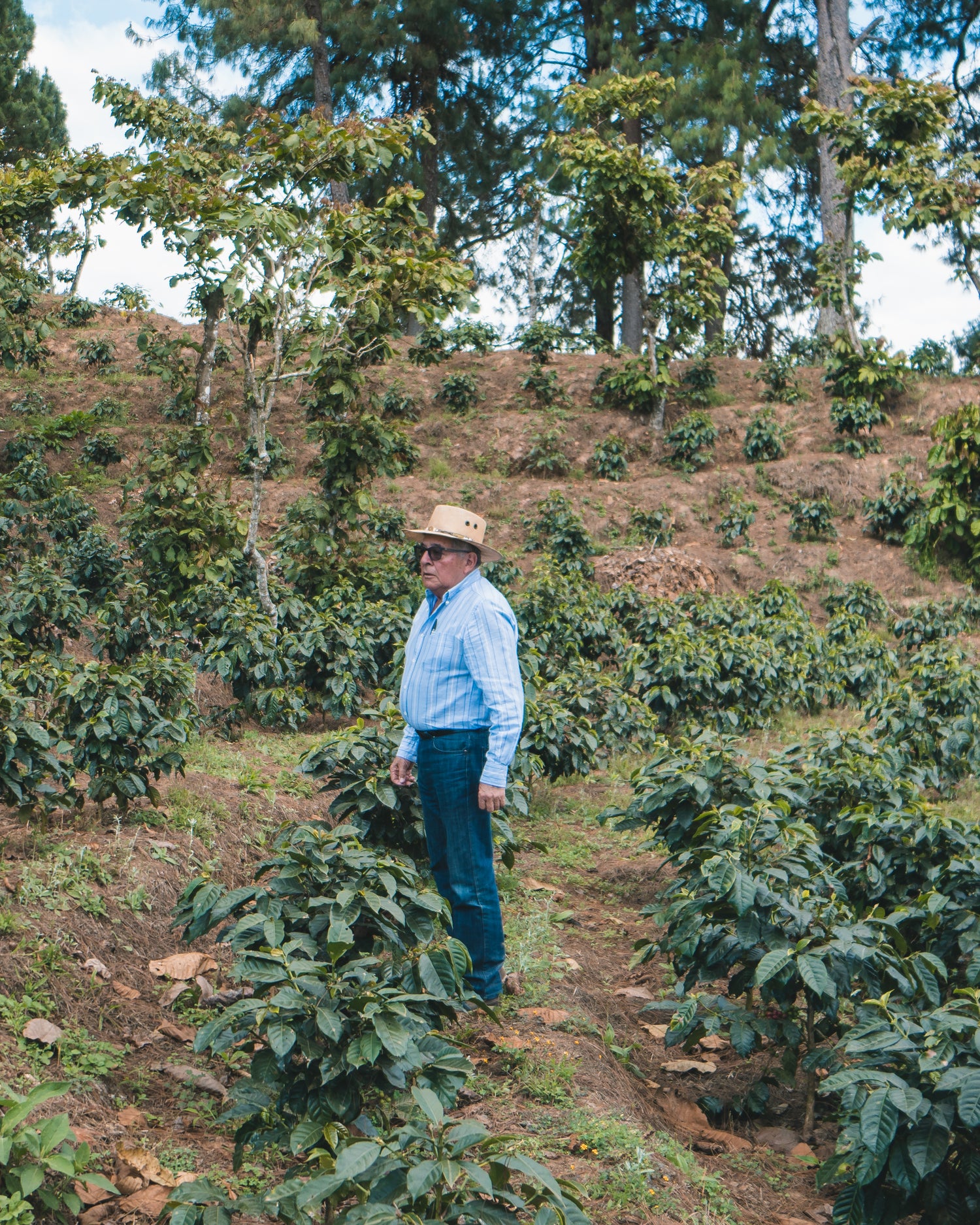
El Salvadorian coffees
Coffee arrived in El Salvador in the 1880s and soon became a major wealth generator for the country’s elite rulers. Indigo, the plant that was used to dye cloth that iconic blue, had long been the main export crop for both El Salvador and Guatemala. However, in the 1880s, as new, cheaper, man-made dyes became available, the country’s indigo export business gradually disappeared.
As coffee supplanted indigo as the country’s biggest export crop, the small, landholding elite who possessed large swathes of land benefited. These elites were almost all deeply connected to politics, including the president of El Salvador himself, General Tomás Regalado, who at one point owned more than 6,000 hectares. Politicians had a habit of using their office (and the military) to force peasants to cede their land to cronies and even to work as poorly- or unpaid forced labor on large estates.
The landed elite invested heavily in infrastructure - roads and mills - that enabled El Salvador’s coffee industry to flourish. However, it was not until many years later, when land was redistributed to landless farmers, that the majority of the population was able to benefit from those investments.
By the 1920s, 90% of El Salvador’s exports were coffee, and by the 1970s, El Salvador was the world’s 4th largest coffee producer. This accolade is made even more impressive when considering El Salvador’s diminutive size. Unfortunately, El Salvador’s standing as an agricultural powerhouse was decimated by the full-fledged civil war that lasted from 1979 to 1992.
One outcome of the country’s civil war was significant land reform that disaggregated many of the large estates and redistributed land to landless workers. Today, 95% of El Salvador’s coffee growers cultivate coffee on fewer than 20 hectares. Estate sizes for single owners are capped at 245 hectares.




